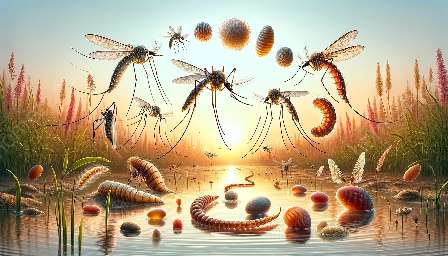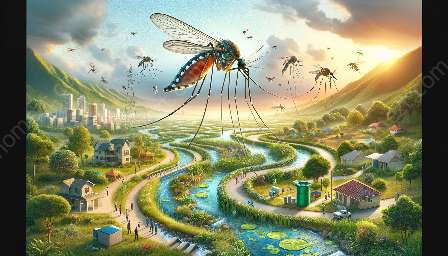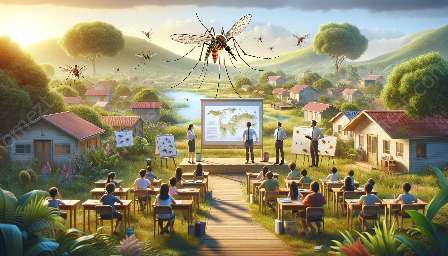Mosquito control research plays a crucial role in combating the spread of mosquito-borne diseases and maintaining public health. With the increase in global travel and changing climates, mosquitoes have become a growing concern. This has led to an urgent need for innovative and effective mosquito control methods. In this topic cluster, we will explore the latest research in mosquito control and its compatibility with pest control strategies.
Understanding the Impact of Mosquitoes
Mosquitoes are more than just annoying pests; they are vectors for various deadly diseases such as malaria, dengue fever, Zika virus, and West Nile virus. The World Health Organization estimates that mosquitoes are responsible for several million deaths each year. In addition to infectious diseases, mosquitoes can also cause allergic reactions and discomfort. Therefore, effective mosquito control is essential to protect public health and well-being.
Research in Mosquito Control
The field of mosquito control research is vast and encompasses various disciplines, including entomology, epidemiology, ecology, and public health. Scientists and researchers are continually exploring new methods and technologies to control mosquito populations and mitigate the risk of disease transmission.
1. Biological Control
Biological control methods involve using natural enemies of mosquitoes, such as predatory fish, bacteria, and certain insects, to reduce mosquito populations. Research in this area focuses on the development of safe and environmentally friendly biological control agents to target mosquitoes at different stages of their life cycle.
2. Genetic Modification
Advancements in genetic engineering have facilitated the development of genetically modified mosquitoes that carry self-limiting or lethal genes. When released into the wild, these modified mosquitoes can suppress or eliminate local mosquito populations. Ongoing research aims to enhance the efficiency and safety of genetic modification methods for mosquito control.
3. Integrated Pest Management
Integrated Pest Management (IPM) combines multiple control tactics, including biological, chemical, and physical methods, to manage mosquito populations. This approach emphasizes the use of environmentally sensitive practices to prevent and reduce pest infestations. Researchers are exploring the integration of innovative technologies, such as remote sensing and drone-based applications, into existing IPM strategies.
Compatibility with Pest Control
Mosquito control is inherently intertwined with pest control efforts, as mosquitoes are considered a significant pest due to their ability to transmit diseases and disrupt outdoor activities. Therefore, many pest control companies and organizations incorporate mosquito control services into their offerings. By understanding the biology and behavior of mosquitoes, pest control professionals can devise tailored strategies to effectively manage mosquito populations.
Effective Mosquito Control Measures
Research-driven advances in mosquito control have led to the development of various effective measures to combat mosquito populations. These measures include:
- Use of larvicides to target mosquito larvae in breeding sites
- Implementation of adulticides to reduce adult mosquito populations
- Employment of mosquito traps and barriers to limit mosquito activity
- Application of environmentally friendly insect repellents to protect individuals from mosquito bites
Conclusion
Mosquito control research is essential for addressing the global challenge of mosquito-borne diseases and sustaining public health. By leveraging innovative technologies and interdisciplinary approaches, researchers continue to make remarkable strides in developing sustainable and effective mosquito control methods. This comprehensive understanding of mosquito control research and its compatibility with pest control highlights the importance of ongoing efforts to combat mosquitoes and minimize their impact on human populations.





























